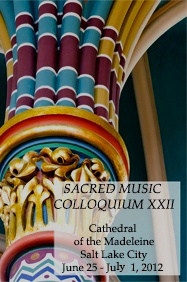Pope establishes new Pontifical Academy for Latin
 Pope Benedict XVI on Saturday issued
the Motu Proprio Latina Lingua, which establishes the new Pontifical Academy for
Latin. The Academy is meant to promote the knowledge and study of the Latin
language and Latin literature, from classical times to the present
day.
Pope Benedict XVI on Saturday issued
the Motu Proprio Latina Lingua, which establishes the new Pontifical Academy for
Latin. The Academy is meant to promote the knowledge and study of the Latin
language and Latin literature, from classical times to the present
day.“The Latin language has always been held in high regard by the Catholic Church and the Roman pontiffs,” writes Pope Benedict.
He pointed out Latin and Greek were used in the early Church, being the universal languages of the time, and since then the Church has made Latin “her own language.”
The Holy Father writes, “After the demise of the Roman Empire, the Church of Rome not only continued to make use of the Latin language, but also became in a way its guardian and promoter, both in theology and liturgy, and in formation and the transmission of knowledge.”
Pope Benedict said a good understanding of Latin is more necessary than ever in the Church, due to its importance in studying Theology, Liturgy, Patristics, and Canon Law.
He said a “superficial” knowledge of Latin can be detrimental to the philosophical and theological training of future priests.
However, the Academy is also meant to serve the wider society.
“in our own times…there is a renewed interest in the Latin language and classical culture, and not only on those continents that have their cultural roots from the Greco-Roman heritage,” Pope Benedict writes. “Such interest is all the more significant because it involves not only the academic world, but also young people and scholars from very diverse nations and traditions.”
The new Pontifical Academy will be under the Pontifical Council for Culture, and replace the Latin Foundation established by Pope Paul VI. The President of the Academy will be Professor Ivano Dionigi, while the Secretary will be Father Roberto Spataro, S.D.B.
Its mandate includes producing publications, hosting conferences and seminars, and promoting Latin in the new media.
Listen:
http://en.radiovaticana.va/articolo.asp?c=637567
